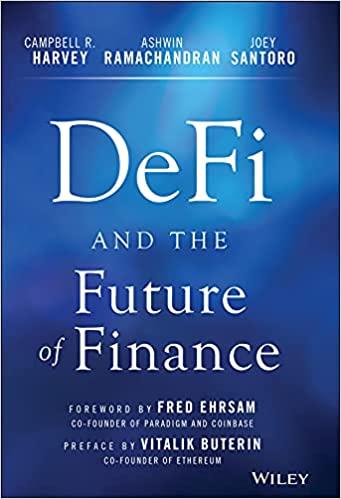Question
Question 1. 1. (TCO 2) An offshoot of business process outsourcing which requires a greater skill or knowledge of the industry or inner workings of
Question 1. 1. (TCO 2) An offshoot of business process outsourcing which requires a greater skill or knowledge of the industry or inner workings of a firm is: ______. (Points : 5) research-based outsourcing offshoring knowledge process outsourcing knowledge-based offshoring Question 2. 2. (TCO 5) Negotiations in a BPO agreement are largely determined by which factor? (Points : 5) The underlying objectives of each of the parties The scope of services being outsourced The relative bargaining positions of the parties All of the above Question 3. 3. (TCO 7) For most customers, requesting multiple bids is the preferred approach because it: _______. (Points : 5) adds to the project legitimacy may lead to competitive pricing or service levels enables the customer to use the possibility of other interested vendors as a negotiating tool all of the above Question 4. 4. (TCO 6) Factors that may affect the BPO agreement structure include all of the following except: ______. (Points : 5) scope of services cost allocation geographic scope which party signs the agreement first (i.e., customer or vendor) Question 5. 5. (TCO 3) How are the procurement responsibilities divided between the project manager and contract administrator? (Points : 12) Question 6. 6. (TCO 4) What is the basic difference between the Cost-Plus-Percentage-Fee (CPF) and the Cost-Plus-Incentive-Fee (CPIF) contract structures? (Points : 12) Question 7. 7. (TCO 6) Sometimes, a seller is selected based solely on lowest price. However, sometimes this is not always the most efficient or effective way of selecting a seller. What are some of the other evaluation criteria that a buyer may use to help select a seller? (Points : 12) Question 8. 8. (TCO 8) What are the two ways to rank the seller's proposals before selecting a seller? (Points : 12) Question 9. 9. (TCO 7) List and define four common elements of an RFP. (Points : 12) (TCO 2) Part 1: Explain the various steps of the project procurement process. Part 2: Using the simple decision of packing and moving your home furnishings from the East Coast to the West Coast, provide an example of what you would do under each of the six steps of the project procurement process. Part 3: The buyer determines the contract pricing structure during which step of the project procurement process? (Points : 30) Question 2. 2. (TCO 1) Part 1: Define the four types of contract pricing structures. Part 2: Using the following four factors--scope, schedule, budget, and risk--evaluate the appropriate use of each of the contract pricing structures. Part 3: What type of contract pricing structure would you use if you had a well-defined product that would be completed in a relatively short period of time? (Points : 30) Question 3. 3. (TCO 3) Identify and describe the benefits that procurement outsourcing will bring to the organization. (Points : 30) Question 4. 4. (TCO 1) Discuss the importance of obtaining support for the process of Business Process Outsourcing. Who would be important to involve and why? (Points : 30)
Step by Step Solution
There are 3 Steps involved in it
Step: 1

Get Instant Access to Expert-Tailored Solutions
See step-by-step solutions with expert insights and AI powered tools for academic success
Step: 2

Step: 3

Ace Your Homework with AI
Get the answers you need in no time with our AI-driven, step-by-step assistance
Get Started


